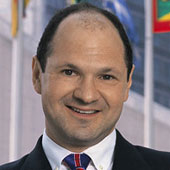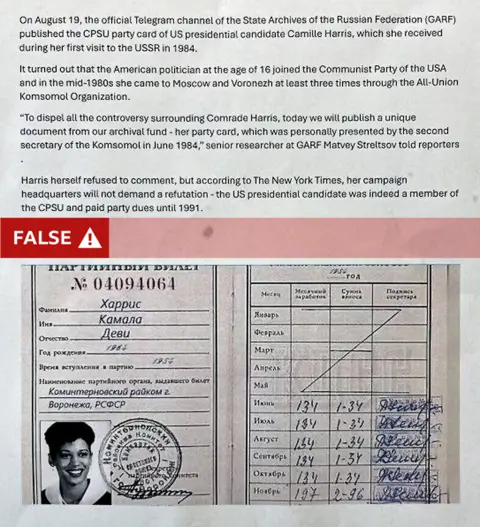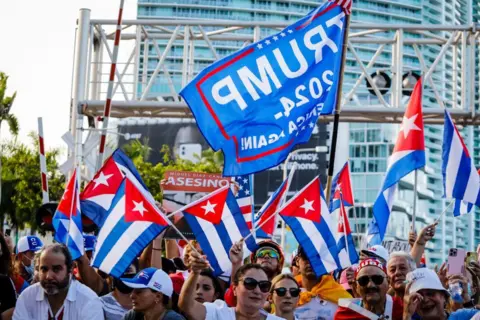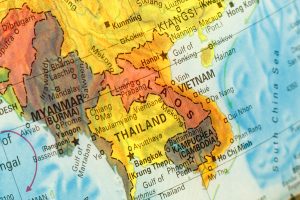
“Don’t Pray – Go Gay”: Confronting the fundamentalists in Zurich
Activists in Switzerland storm the stage at the homophobic and anti-abortion “March for Life” event
~ from Barrikade ~
As they do every year, this September too, the fundamentalists crawled out of every hole of their contempt for humanity to Oerlikon (Zurich, Switzerland) to demonstrate against the basic human right to a safe abortion. And as every year, only a huge police presence made the demonstration possible.
In addition to the inhumane slogans against abortion, the organisers and participants of the “March for Life” openly and violently incite against queer people. They portray the realities of queer people’s lives as a threat to their conservative constructs such as fatherland, Christianity and traditional family. And when they openly take their hate speech to the streets, protected and supported by cops, then the threat becomes real, because we — the faggots, transsexuals and tomboys — will not allow our self-determination and freedom to be taken away from us.
Nevertheless, the followers of fundamentalist Christianity try again every year. The emphasis in the previous sentence should be on the word “try” — because anyone who marches through Zurich with such inhumane content can be sure of one thing: where the fundamentalists are, resistance is not far away.

As part of this resistance, activists sneaked into the fundamentalist demonstration to storm the stage with a banner and make a statement against their right-wing agitation. This action is one of many acts of resistance to show that the fundamentalists and their ideas are not welcome in Zurich or anywhere else.
Our resistance is stronger than their demonstration, their cops and their Christianity. Whether we want children or not is up to u

Bulgaria’s LGBTQ+ community fights for its existence
The legislature has rushed through a law that mirrors Russia’s notorious “gay propaganda” legislation
~ from You Are Not (A)lone ~
In the heart of Sofia, under a sky that couldn’t decide between sun and rain, a rainbow flag fluttered defiantly. It was the penultimate day of what had become a grueling week-long protest against a draconian new law that threatened to silence Bulgaria’s LGBTQ+ community. The air was thick with tension, the kind that precedes a storm – or a revolution.
“We are here, we are queer, they can’t make us disappear!” The chant rose from a sea of faces, some painted in vibrant hues, others etched with determination. Among them was Stefi, her eyes scanning the perimeter nervously. Just hours earlier, she had received a death threat – one of many that had been hurled at the protesters like poisoned darts.
“I’ve been on the streets for five days now,” Stefi confided, her voice barely audible above the din of the protest. “We’ve been spat on, cursed at, had bottles thrown at us. One of my friends was kicked in the stomach by a Nazi provocateur.” She paused, her gaze distant. “But we keep singing, we keep shouting. It’s what we have to do.”
The protest was a last-ditch effort to challenge a law that mirrors Russia’s notorious “gay propaganda” legislation – a law that the European Union has twice declared unconstitutional. Yet, in a chilling echo of authoritarianism, the Bulgarian parliament had rushed it through, passing it in two readings within a single day, silencing the voices of those it would most affect.
As night fell, the shadows seemed to come alive. A group of 30 neo-Nazis materialized, circling the protesters like wolves. The police, conspicuous in their absence throughout the week, remained passive bystanders to the unfolding drama.
“The municipality can’t have two protests at the same place,” explained Stefan, another protester, his voice tinged with bitter irony. “They just wanted to put us at risk, to show us how pathetic and meaningless we are”.
The next day, the final day of the protest, brought a surreal twist. Another group, ostensibly protesting road violence, had been granted permission to occupy the same space. The LGBTQ+ protesters found themselves being asked to tone down their music, to make themselves smaller, less visible.
In a moment of raw vulnerability, one protester attempted to extend an olive branch, asking if they could show support for the other group’s cause. The response was swift and cruel – they were asked to leave, escorted away by the same police who had turned a blind eye to the violence against them all week.
This series of events unfolded against the backdrop of an open letter penned by the Solidarity Circle “You Are Not (A)lone”, a group uniting survivors of various forms of violence and discrimination. The letter, addressed to the Bulgarian public, laid bare the insidious nature of the new legislation and the broader anti-gender movement sweeping across Europe.
“What we are witnessing,” the letter states, “is a clear attempt to advance the covert agenda of the global populist movement against democracy, human rights, and prevention of social abuse of power and control”. The letter goes on to debunk the deceptive claims used to justify the legislation, exposing them as part of a larger strategy to mislead the public and obstruct progress in fighting discrimination and violence.

As the sun set on the final day of the protest, the air heavy with unrealized hopes, one couldn’t help but be reminded of James Baldwin’s prescient words: “We can disagree and still love each other unless your disagreement is rooted in my oppression and denial of my humanity and right to exist”.
In Bulgaria, it seems, the right to exist is still something the LGBTQ+ community must fight for, one rainbow flag at a time.
But the story doesn’t end here. As we go to press, reports are emerging of continued harassment, of protesters being recognised and targeted on social media. The urgency of their situation cannot be overstated.
“Sharing is caring”, one protester told me, her eyes shining with a mixture of fear and determination. “We need the world to know what’s happening here. We need help”.
As the international community turns its gaze to this corner of Eastern Europe, one question looms large: Will the arc of Bulgaria’s moral universe bend towards justice, or will the shadows of intolerance extinguish the rainbow’s vibrant hues?
The answer, it seems, lies not just in the halls of power in Sofia, but in the hearts and minds of people around the world who believe in the fundamental right of all humans to live, love, and exist freely.
For now, in the streets of Sofia, a chant continues to echo: “We’re here, we’re queer, they can’t make us disappear”.








 X/AI-generated image
X/AI-generated image X
X




